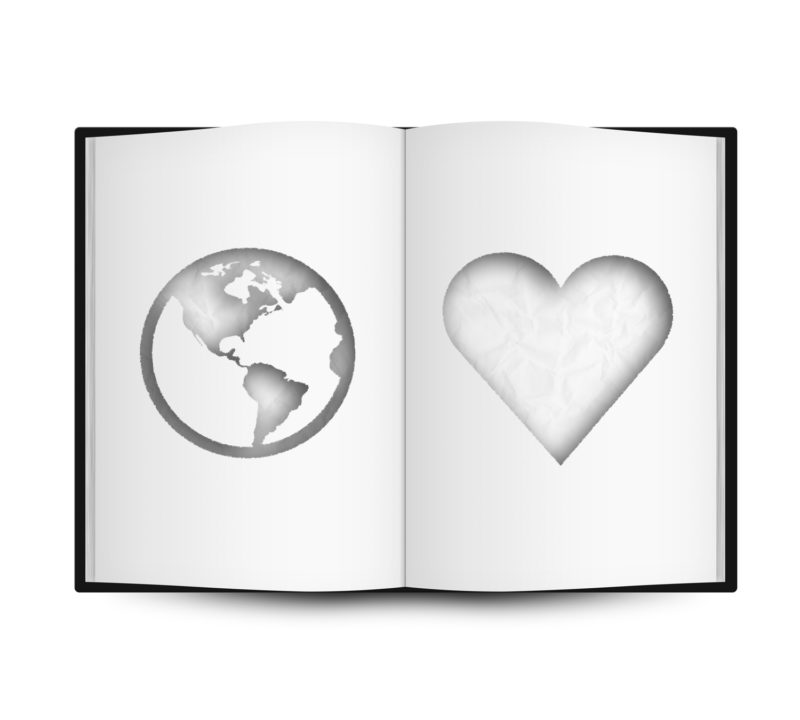Sometimes I think about other jobs I could be happy doing. I think I’d like a job helping needy people or non-human animals, or one in which I do something more productive with my hands than type. But I guess that is the way things work: it takes years to gather the wisdom that should have directed your decisions years ago. Borges wrote a story called “The Garden of Forking Paths” in which a character arrives at the height of his understanding “” a vision of infinite possibility “” at the very moment when he has run out of choices and is forced to do the single thing that he least wants to do: commit murder.
Happily, things are not so dire for me. I’m satisfied by what I do: reading, writing and teaching. But in the face of the more obvious exigencies of our world, I often reflect on the value of my primary object of attention: works of fiction. Why should anyone want to study them?
Some argue that literary art is valuable for its beauty. Well, I wouldn’t want to be accused of being entirely insensible to beauty, and from time to time I am even moved by it, like a day I recall in Prof. Tontiplaphol’s class on John Keats. When Keats writes, “Veil’d Melancholy has her sovran shrine, / Though seen of none save him whose strenuous tongue / Can burst Joy’s grape against his palate fine,” he tells us that without Melancholy, Joy is like a whole grape in our mouths: tasteless. Just as it is only by crushing the grape that we taste its sweetness, so is it only by enduring loss or being crushed that we are able to taste Joy when it comes. There are a million ways of expressing this idea, but few have the beauty, surprise and, perhaps, profundity of Keats’ lines. But beauty, as the title of an Ornette Coleman song tells us, is a rare thing. It comes too infrequently to justify a life of reading literature, and there are probably more productive ways of failing than to try to teach it.
What about the idea that literature, fiction particularly, allows us to understand the experiences of others, to learn empathy and compassion? It is true that fiction, through what Coleridge called the “willing suspension of disbelief,” remains one of the most effective forms of virtual reality. It invites you to crawl around in another’s skin, to time travel, to escape from the cramped organism of the self. Ideally, we learn to respect difference and commonality, to see the self in the other and the other in the self. But empathy and compassion can surely come from other places besides novels, so I think there are limits to seeing this as fiction’s special value.
Then there is the idea that novels can give us a critical perspective on the world. Novels can distill into a significant form problems that are harder to grasp in everyday life than in fiction. Most novels do not have revolutionary effects on the world, but they can subtly change individual minds over time by making us sharper critics, keener interpreters and better skeptics. Interestingly, they can do this by being complicit with the reigning ideology, or they can do so by being, to some degree, critical of it. Either way, fiction helps to demystify the world. But this, too, falls short of what I really value in novels.
I think the beautiful, experiential and critical functions of fiction must be completed with an understanding of its simultaneously affirmative function. Take Cervantes’ “Don Quixote,” the first modern novel. Arguably, every other novel is simply a variation on the basic premise of “Don Quixote”: romantic desire comes into conflict with irreducible reality. As in all novels, something is wrong with the world; it is not as we would have it, and we bruise and beat ourselves by bucking against it. Don Quixote has gone mad from reading too much fiction. In a decidedly unromantic mercantile age, he believes that he is a knight errant. Ideologically, Cervantes uses Don Quixote’s delusion to comically savage at once an idealized feudalism and an emerging capitalism, balancing the inadequacies of one against the other. This is the novel’s demystifying function. But it is also affirmative. One thing it affirms is the wishful image of friendship between the hidalgo Don Quixote and his peasant squire, Sancho Panza, men separated by class under both the feudalist and the capitalist codes, but brought together in solidarity in one of literature’s greatest and most comic (in the grand sense of the term) images of fellowship. Another thing it affirms is hope for a better world. Don Quixote is a comic figure, but like most of us, he believes that the world should be better; unlike most of us, when confronted with inadequate reality, there are no limits to the lengths of his inexhaustible dreaming.
Novels seldom show us directly what the better world looks like, except in the genre of utopian literature. But I suppose I’m arguing that all literature is utopian literature. It’s just that utopia is conveyed through the unachieved, the repressed or the negative image. But it can still provoke unexpected desires in us. Its wish images still stir us. So, yes, fiction can arrest with beauty, transport us into experiences beyond our own, and confront us with the inadequacies and injustices of the world, but it can also show a shadow-image of a world more adequate to human needs. This is the “forward-dawning” of fiction that keeps me turning pages, typing and teaching.






